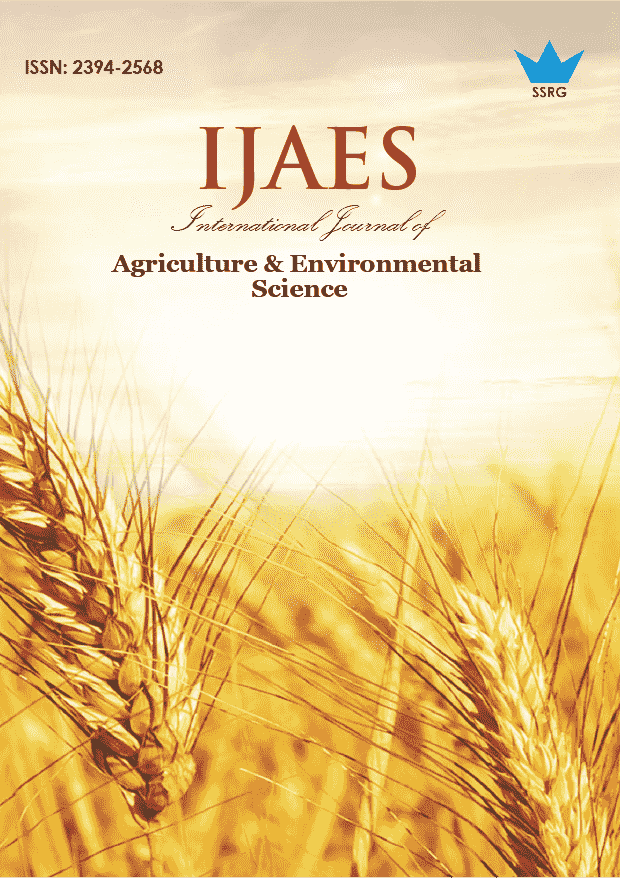Impact of Socio Personal Attributes of Vermicompost Production in Terms of Income and Employment Generation in Hoshangabad District (Madhya Pradesh)

| International Journal of Agriculture & Environmental Science |
| © 2018 by SSRG - IJAES Journal |
| Volume 5 Issue 4 |
| Year of Publication : 2018 |
| Authors : Ms. Mamta Baraskar, Dr. Sandhya Choudhary, Dr.Abhay Wankhede, Dr.S.K.Jain, Dr. Deepak Kumar Verma |
How to Cite?
Ms. Mamta Baraskar, Dr. Sandhya Choudhary, Dr.Abhay Wankhede, Dr.S.K.Jain, Dr. Deepak Kumar Verma, "Impact of Socio Personal Attributes of Vermicompost Production in Terms of Income and Employment Generation in Hoshangabad District (Madhya Pradesh)," SSRG International Journal of Agriculture & Environmental Science, vol. 5, no. 4, pp. 34-36, 2018. Crossref, https://doi.org/10.14445/23942568/IJAES-V5I4P106
Abstract:
The vermicompost is the major component of organic farming as it may fulfill all the requirements with respect to production and protection of crop plants. The vermicompost may also be used as a tool for income generation, organic farming, protection of environment, maintaining the soil health and sustaining the agricultural production. Therefore present study design to find out the effect of socio-personal attributes on vermicompost preparation and selling. It was revealed that education, size of land holding, area under use of vermicompost, annual income, numbers of vermicompost unit, cost of production, mass media exposure, exposure of training had positively significant, whereas age ,family type ,social participation had non-significant relationship with impact of vermicompost technology in term of employment generation.
Keywords:
Socio personal attributes, Vermicompost Production, Employment Generation
References:
[1] Aalok S. and Soni P. (2008). Vermicomposting: A Better Option for „Organic Solid Waste Management.‟ J. Hum. Ecol.,vol 24(1):pp 59-64.
[2] Kharatmol and Uddiyanya V. (2015). Training needs of agriculture and profitability in organic farming and vermicompost technology in Karnataka. Crop Res., 14(1): pp173-178.
[3] Srinivas A and Sailaja V. (2013). Training needs of agriculture and profitability in organic farming technology. Crop Res., 14(1): 173-178.
[4] Sharma and Sharma B.M. (2010). Association between knowledge of farmers about important extension programme of KVK and selected independent variable. Rural India, 279-281.

 10.14445/23942568/IJAES-V5I4P106
10.14445/23942568/IJAES-V5I4P106